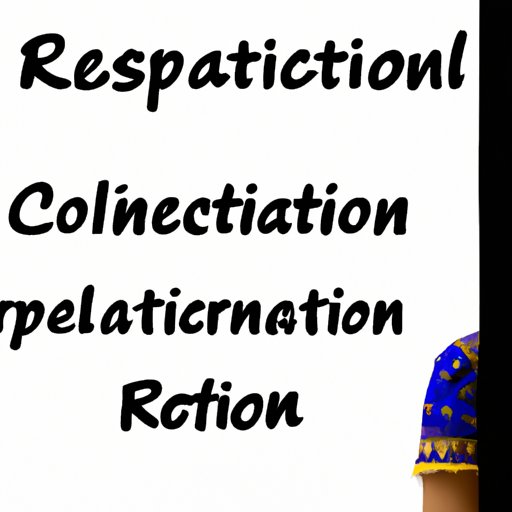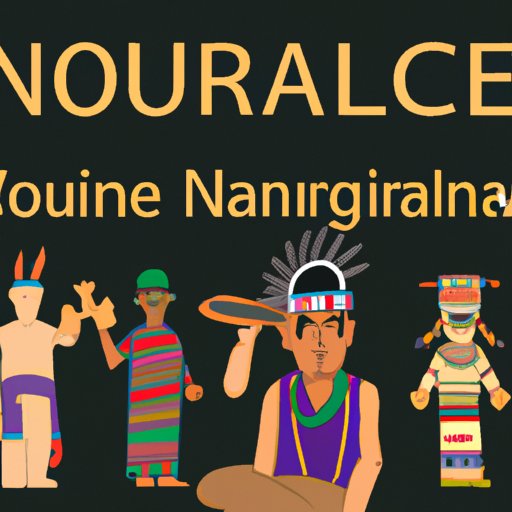Introduction
Culture appropriation is a term used to describe when someone adopts elements of another culture without permission or understanding of its true meaning. It has become an increasingly contentious issue in today’s society, generating debate and criticism as people try to determine what is appropriate and respectful behavior towards other cultures. This article will explore the origins of culture appropriation, examine its impact on society, investigate associated legal issues, analyze recent examples, discuss how to engage with other cultures respectfully, and identify solutions to combat culture appropriation.

Exploring the Origins of Culture Appropriation
In order to gain a better understanding of culture appropriation, it is important to look at its historical context. According to Professor Adrienne Keene, “Cultural appropriation can be defined as the taking—from a culture that is not one’s own—of intellectual property, cultural expressions or artifacts, history and ways of knowledge.” This definition highlights the fact that culture appropriation often involves the exploitation of marginalized groups who have limited access to resources and representation.
The concept of culture appropriation has roots in colonialism and imperialism, which have had a lasting impact on social structures throughout the world. For example, during the period of European colonization, many Indigenous cultures were stripped of their traditional knowledge, languages, and customs. These practices have continued throughout history, resulting in a lack of respect for the rights and values of Indigenous communities.

Examining the Impact of Culture Appropriation on Society
Culture appropriation has wide-reaching impacts on society, particularly in terms of identity and representation. When a person or group appropriates elements from another culture, they are often seen as more “acceptable” than those who actually belong to that culture. This can lead to feelings of alienation and erasure for those who are part of the culture being appropriated.
In addition, culture appropriation can have serious effects on access to resources. Marginalized groups may find themselves excluded from opportunities due to appropriation by more privileged members of society. This can be especially damaging for minority groups who are already struggling to gain access to resources.
Investigating the Legal Issues Surrounding Culture Appropriation
When discussing culture appropriation, it is also important to consider the legal implications. Intellectual property laws are designed to protect the rights of creators, but they can also be used to prevent the misuse of cultural expressions. Copyright and trademark laws can help ensure that Indigenous communities are compensated for the use of their cultural artifacts and symbols.
In addition, there are international laws that aim to protect Indigenous peoples’ rights to their cultural heritage. The United Nations Declaration on the Rights of Indigenous Peoples (UNDRIP) includes provisions that guarantee Indigenous peoples’ right to their cultural heritage, as well as their right to benefit from its commercial use.
Analyzing Recent Examples of Culture Appropriation
Recent years have seen a surge in media attention surrounding culture appropriation. Beyonce’s 2018 Coachella performance was criticized for its use of African-inspired costumes and choreography, while the Kardashian family has been accused of profiting from the appropriation of Black culture. These controversies have sparked debates about whether certain forms of cultural expression are respectful or exploitative.
Cultural misappropriation is also prevalent in popular culture. From fashion brands using Native American headdresses as accessories to celebrities wearing bindis as a fashion statement, many people have been accused of appropriating elements from other cultures without understanding or respecting their true significance.
Discussing How to Respectfully Engage With Other Cultures
While it is possible to engage with other cultures without appropriating them, it is important to understand the boundaries. Learning about different cultures and avoiding stereotypes can help ensure that interactions are respectful and meaningful. It is also important to recognize that some cultural elements may be off-limits, and that permission should always be granted before engaging with them.
It is also important to remember that cultural exchange should be beneficial for both parties. Respecting the boundaries of other cultures and avoiding stereotypes can help ensure that interactions are mutually beneficial and respectful.

Identifying Solutions to Combat Culture Appropriation
In order to combat culture appropriation, it is important to support Indigenous communities and advocate for their rights. This can include donating to organizations that work to protect Indigenous communities and their cultural heritage, supporting Indigenous-owned businesses, and advocating for policy changes that recognize and protect Indigenous peoples’ rights.
Educating others about culture appropriation is also essential. Raising awareness about the harm caused by cultural misappropriation can help ensure that people are more mindful of their actions and think twice before engaging with elements from another culture.
Finally, it is important for companies and individuals to adopt ethical business practices. This includes refraining from using cultural artifacts in advertising or branding, paying artists and creators for the use of their work, and ensuring that Indigenous peoples are consulted and compensated for the use of their cultural heritage.
Conclusion
In conclusion, culture appropriation is an issue that has significant implications for society. Its origins can be traced back to colonialism and imperialism, and it has had a lasting impact on social structures and access to resources. There are also legal implications to consider, as well as recent examples of cultural misappropriation in popular culture. To combat culture appropriation, it is important to support Indigenous communities, educate others, and adopt ethical business practices.
Ultimately, it is essential that we all strive to behave respectfully towards other cultures and recognize the importance of protecting Indigenous peoples’ rights to their cultural heritage. By doing so, we can ensure that our interactions are meaningful and mutually beneficial.
(Note: Is this article not meeting your expectations? Do you have knowledge or insights to share? Unlock new opportunities and expand your reach by joining our authors team. Click Registration to join us and share your expertise with our readers.)
